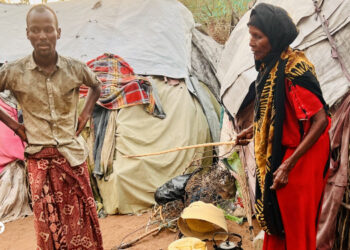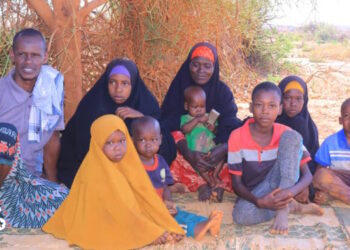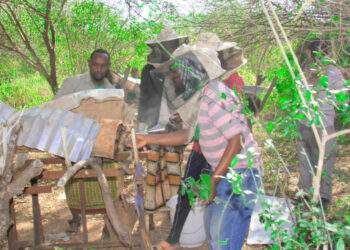(ERGO) – Ahmed Ali Hassan and 50 other drivers who normally ply the routes between the three Dadaab refugee camps of Ifo, Dhagahley and Hagardhera in northeastern Kenya no longer know how they are going to makes ends meet, after restrictions curbing the spread of Coronavirus put a stop to most local travel.
Hassan, whose family depends on income from his driving, told Radio Ergo that before the pandemic he used to earn $50 from five to six trips a day, but now he is lucky if he makes enough to fuel his vehicle.
“It’s tough to find money for fuel now, whereas before I used to reserve some money for the car and use the rest for other things,” he said.
Drivers are no longer allowed to travel between the three camps. There is little business within any of the camps as everybody has been affected by the economic downturn and people have little money.
“Our sector used to sustain a lot of people, including those who manage the bus station, the porters, the touts, the car-washers and the garage employees. Now we don’t even have money to repair the vehicles,” Hassan complained.
Dool Areys Guhad sits on the 20-member committee that oversees the public service vehicles in Dadaab camps.
“In the early hours of the morning we used to set the daily travel schedule for each vehicle and we would discipline any driver who violates the rules,” he said.
He was earning $30 from that job to support his family, but now that there are no vehicles traveling between the camps, he has no job and is worried about the future.
“If the current travel restrictions are extended it will be the end of my work and I’ll be left with nothing to do,” he said.
Abdullahi Labi Ibrahim, a father of seven, told Radio Ergo his options are limited now that the sector he has been working in for the past 10 years has come to a standstill. He used to collect the money from passengers, a job known as touting.
“I’m not a government employee or an educated guy with employment options. I’ve lost the only work I had, the small daily wages I used to collect from the vehicles, and I have no one to turn to for help,” he lamented.
Refugees in Dadaab camps mostly depend on casual work and small businesses to supplement the aid assistance they get from international organisations. Those sources of income are drying up due to the ongoing Coronavirus restrictions in Kenya.











